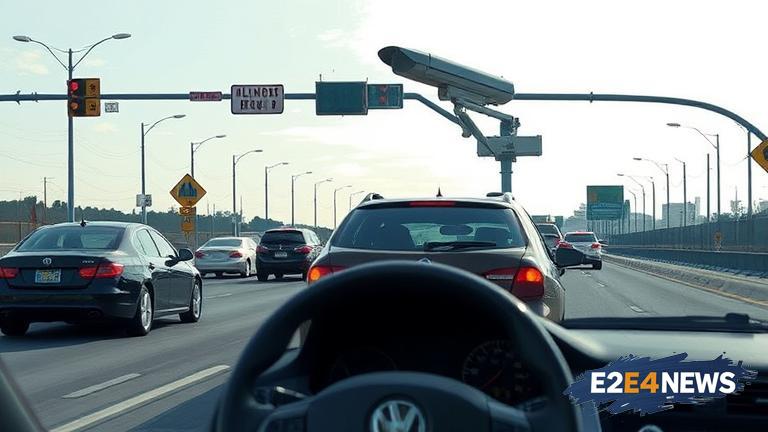A recent investigation has uncovered that federal agencies, including the FBI and the DEA, have been using license plate readers and other surveillance technology to track the movements of drivers in Illinois. This has sparked controversy over the use of such technology and the potential for abuse of power. The surveillance program, which has been in place for several years, uses cameras and sensors to capture images of license plates and track the movements of vehicles. The data collected is then stored in a database and can be used to track the movements of individuals over time. The use of such technology has raised concerns over privacy rights, with many arguing that it is an invasion of privacy and a violation of the Fourth Amendment. The Fourth Amendment protects citizens from unreasonable searches and seizures, and many argue that the use of license plate readers and other surveillance technology is a clear violation of this right. The surveillance program has also raised concerns over the potential for abuse of power, with many arguing that it could be used to target certain groups or individuals. The FBI and the DEA have argued that the surveillance program is necessary to combat crime and terrorism, but many are skeptical of this claim. The use of license plate readers and other surveillance technology is not unique to Illinois, with many other states and cities using similar technology. However, the use of such technology in Illinois has sparked particular controversy due to the state’s history of corruption and abuse of power. The Illinois state government has been criticized for its handling of the surveillance program, with many arguing that it has not done enough to protect the privacy rights of citizens. The state government has argued that it is necessary to balance the need for public safety with the need to protect individual privacy rights. However, many are skeptical of this claim, arguing that the state government has not done enough to ensure that the surveillance program is used in a responsible and transparent manner. The controversy over the surveillance program has sparked a wider debate over the use of technology and the potential for abuse of power. Many are arguing that there needs to be greater oversight and regulation of the use of surveillance technology, in order to protect individual privacy rights and prevent abuse of power. The use of license plate readers and other surveillance technology is just one example of the many ways in which technology is being used to track and monitor individuals. The use of such technology has raised concerns over the potential for a surveillance state, in which the government has the ability to track and monitor the movements of citizens at all times. The controversy over the surveillance program in Illinois is just one example of the many debates that are taking place over the use of technology and the potential for abuse of power. As technology continues to evolve and become more sophisticated, it is likely that these debates will only continue to grow in importance. The use of surveillance technology is not limited to the government, with many private companies also using such technology to track and monitor individuals. The use of such technology has raised concerns over the potential for abuse of power and the invasion of privacy, and has sparked a wider debate over the need for greater regulation and oversight. The controversy over the surveillance program in Illinois is a reminder that the use of technology must be carefully considered and regulated, in order to protect individual privacy rights and prevent abuse of power. The state government must do more to ensure that the surveillance program is used in a responsible and transparent manner, and that individual privacy rights are protected. The use of license plate readers and other surveillance technology is a complex issue, and one that requires careful consideration and debate. As the use of such technology continues to evolve and become more sophisticated, it is likely that the controversy over the surveillance program in Illinois will only continue to grow in importance.
